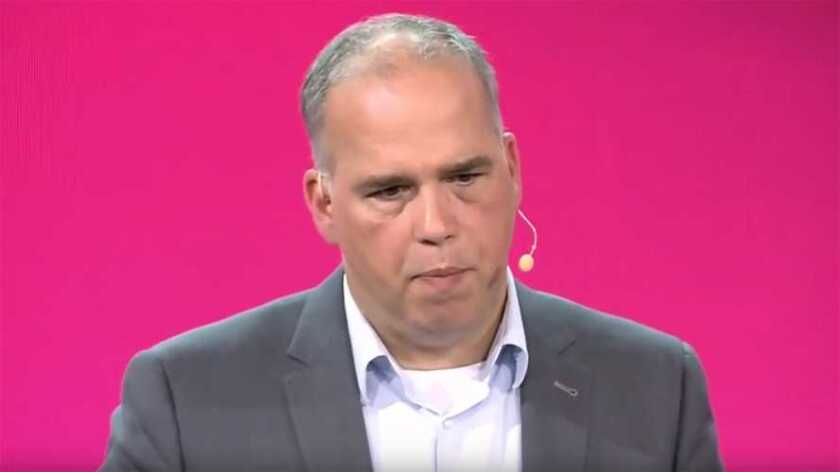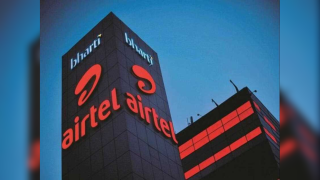The company, which paid a total of €851 million, issued an official statement saying: “The auction leaves a bitter taste behind.”
Dirk Wössner (pictured), member of the board of management of Telekom Deutschland, the group’s German operating company, said: “The network rollout in Germany has suffered a significant setback. The price could have been much lower. Once again, the spectrum in Germany is much more expensive than in other countries. Network operators now lack the money to expand their networks.”
Nick Read, group CEO of Vodafone, was less cruel about the results. “Vodafone is committed to bring the full benefits of a digital society to Germany through our gigabit network including 5G,” he said. “We believe it is important to have a balance between the price paid for spectrum and our strong desire to create an inclusive society through investment in mobile network coverage.”
Operators will have to provide high-speed coverage to 98% of households by 2022 and also to share their network with competitors under a national roaming clause in the contracts. The auction started in March after a hesitant start as the three established operators challenged the terms set by the regulator, Bundesnetzagentur (Federal Network Agency, BNetzA).
The amount paid in 2019 is well below the notorious 3G auction in 2000, when companies pledged more than €50 billion. But it’s more than the auction in 2015, when operators paid €5.1 billion for 4G spectrum.
BNetzA held 497 bidding rounds for spectrum in the 2GHz and 3.6GHz bands.
Deutsche Telekom paid €851 million for 40MHz in the 2GHz band and €1.3 billion for 90MHz in the 3.6GHz band.
Vodafone paid €800 million for 40MHz in the 2GHz band and €1.07 billion for 90MHz in the 3.6GHz band.
Telefónica Germany (O2) paid €381 million for 20MHz in the 2GHz band and €1.04 billion for 70MHz in the 3.6GHz band.
A newcomer, 1&1 Drillisch, spent €335 million on 20MHz in the 2GHz band and €735.2 million for 50MHz in the 3.6GHz band.
1&1 Drillisch is a mobile virtual network operator (MVNO) that will now have its own infrastructure for the first time. Part of United Internet, it uses the GMX and Web.de brands. CEO Ralph Dommermuth said: “As a new player, we would invest directly in a powerful 5G network – in contrast to the current oligopoly of the network operators who want to expand their current antenna locations step by step.”
Deutsche Telekom’s Wössner said: “We want to get started now. For this it is important to determine the framework conditions that were not completely clarified before the auction. Our offer to tackle network expansion in rural areas together with our competitors will continue to apply. We will start talks on this.”
The first antennas for 5G are already installed in test areas in Berlin, Darmstadt and the port of Hamburg, said Deutsche Telekom, which already has 150 5G antennas in operation throughout Europe. In Germany, more than 80% of existing antennas are already prepared for 5G, the company added.






